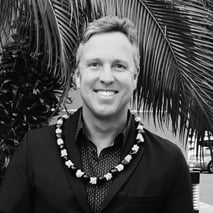Ahead of this talk at World Summit AI USA 2025 (June 18–19, San Francisco), we spoke with Joel Myhre—Humanitarian Innovator & Co-Chair of the UN Global Information Management Working Group for GIS, WHO EOC-NET.
With decades of experience at the intersection of technology and humanitarian aid, Myhre champions the transformative role of AI in addressing global crises like climate change, conflict, and public health. In this conversation, he shares his vision for a more inclusive, transparent AI future, shaped by open data, global collaboration, and equity-first innovation.
What’s your most compelling dream scenario for AI — a breakthrough that would fundamentally improve life on a global scale?
For over two decades, I’ve worked with technology and humanitarian response and I’ve been fortunate to attend WSAI events for the past seven years, and as I look forward, this is a critical time where AI innovations can help meet the enormous challenges of climate change and Humanitarian Response! My dream scenario is Humanitarian AI with inclusive and equitable governance, transparency, and algorithmic audits, open data to enable local first responders, and engagement with academia, industry, governments, and the United Nations to leverage AI to streamline response efforts.
What’s a recent project or breakthrough you're especially proud of — and what kind of impact do you hope it will have in the real world?
Recently, I was honored to join the Danish Refugee Council in Copenhagen working with our partners at the international Federation of the Red Cross and Red Crescent societies, the United Nations, and myriad of nonprofit organizations, advancing open source, artificial intelligence data solutions for humanitarian analytics. Over a decade this project had a large impact, but was challenged by the recent global dynamics affecting humanitarian aid. It is for this reason that WSAI and Intelligent Health events are so important to serve as a global gathering venue to both innovate and advocate for a more equitable and healthier planet.
What’s a use case for AI that you think more people should know about — something positive that’s flying under the radar?
In my current incarnation, I am fortunate to work with the State Of California to ensure environmental protection and safety for all consumers, workers, and geospatial data and artificial intelligence can work together to streamline and focus technology solutions and enable public policy and public health for all.
If you had to choose one nightmare scenario that keeps you up at night — whether realistic or speculative — what would it be, and what warning signs should we be watching for today?
Much of the biggest nightmare scenario we worried about a decade ago has come to pass with robotic warfare and automated weapons of mass destruction across many humanitarian settings. It’s for this reason I’m proud to collaborate with Inspired Minds and WSAI, with events that are far beyond merely technology gatherings, and are always focused on making a difference, achieving equity, and advancing human rights for all..
Who or what do you think has the power to prevent your nightmare scenario above?
To prevent this nightmare scenario, it will take a global village of technology innovators meeting at forum’s around the world hosted by WSAI and partners of the United Nations, etc. With streamlined governance, transparent algorithms, open data, and radical inclusion and localization, we can collectively work together to avoid these dystopian possibilities.
What are we not talking about enough in the AI conversation today — something you believe could be hugely important five years from now?
Much as open source software and open data can be forced multipliers for governments, nonprofits and humanitarians, ensuring diversity, equity, and inclusion across the artificial intelligence ecosystem is important from Silicon Valley to Geneva and beyond as we look forward five years.
If you look ahead 10 years, what do you think will be the biggest change in our daily lives?
Looking ahead 10 years, it goes without saying that artificial intelligence will affect and change almost every aspect of life on earth. It is our task and the imperative of important gatherings like WSAI and Intelligent Health in all regions, globally to serve as important forums for discussion, innovation, Challenging, misconceptions, and advancing radical inclusion, diversity, and equity.
Joel Myhre, Humanitarian Innovator & Co-Chair of the UN Global Information Management Working Group for GIS, WHO EOC-NET Advisor
World Summit AI global Summit series
18 - 19 June 2025
Fort Mason Center, San Francisco
World Summit AI
08 - 09 October 2025
Taets Art & Event Park, Amsterdam
worldsummit.ai
World Summit AI Qatar
09 – 10 December 2025
Doha Exhibition & Convention Center

.png?width=259&name=WSAI%20Amsterdam%20Orange%20no%20dates%202000x300%20(1).png)
.png?width=263&name=IM_Mothership_assets_LOGO_MINT%20(2).png)

